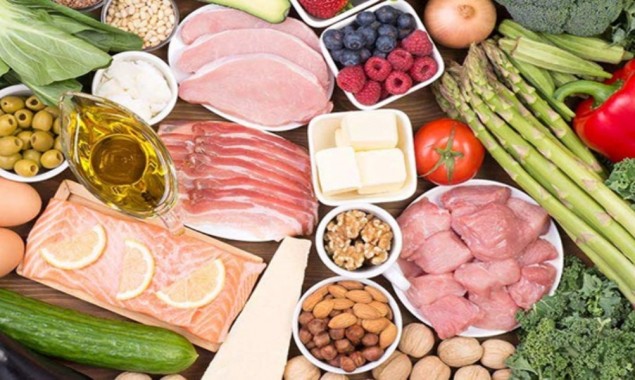
The ketogenic diet (or, for short, keto diet) is a low-carb, high-fat diet that offers many health benefits. Ketogenic diets could even benefit your diabetes, cancer, epilepsy, and Alzheimer’s disease. Itis a high-fat, low-carb diet that shares many similarities with the Atkins diets and low-carb diets.
It involves a drastic reduction in the intake of carbohydrates and its replacement with fat. This lowering of carbohydrates places the body in a metabolic condition called ketosis. When this happens your body becomes incredibly energy-efficient in burning fat. It also converts fat into ketones in the liver which can provide the brain with energy.
Ketogenic diets can lead to massive decreases in blood sugar and insulin levels. This, together with the increased ketones, has many benefits for health
Types of Keto:
Here are different types of Keto. You will have to choose which of its type you will follow.
The standard ketogenic diet (SKD):
This is a diet that is very low in carb, moderate in protein, and high in fat. It typically contains 75% fat, 20% protein and just 5% carbs
The cyclical ketogenic diet (CKD):
This diet includes higher-carb refeed periods like 5 ketogenic days followed by 2 high-carb days.
The targeted ketogenic diet (TKD):
This diet lets you add carbs to workouts.
The high-protein ketogenic diet:
It is similar to a traditional ketogenic diet but more protein is included. The proportion is often 60% fat, 35% protein, and 5% carbs
Foods to Avoid:
Sugary foods: Soda, fruit juice, smoothies, cake, ice cream, candy, etc.
Grains or starches: Wheat-based products, rice, pasta, cereal, etc.
Fruit: All fruit, except small portions of berries like strawberries.
Beans or legumes: Peas, kidney beans, lentils, chickpeas, etc.
Root vegetables and tubers: Potatoes, sweet potatoes, carrots, parsnips, etc.
Low-fat or diet products: These are highly processed and often high in carbs.
Some condiments or sauces: These often contain sugar and unhealthy fat.
Unhealthy fats: Limit your intake of processed vegetable oils, mayonnaise, etc.
Sugar-free diet foods: These are often high in sugar alcohols, which can affect ketone levels in some cases. These foods also tend to be highly processed.
Foods to Eat:
Meat: Red meat, steak, sausage, chicken, and turkey.
Fatty fish: Such as salmon, trout, tuna, and mackerel.
Eggs: Look for pastured or omega-3 whole eggs.
Butter and cream: Look for grass-fed when possible.
Cheese: Unprocessed cheese (cheddar, goat, cream, blue or mozzarella).
Nuts and seeds: Almonds, walnuts, flax seeds, pumpkin seeds, chia seeds, etc.
Healthy oils: Primarily extra virgin olive oil, coconut oil, and avocado oil.
Avocados: Whole avocados or freshly made guacamole.
Low-carb veggies: Most green veggies, tomatoes, onions, peppers, etc.
Condiments: You can use salt, pepper, and various healthy herbs and spices.
Side Effects & How to Prevent Them:
Though the ketogenic diet is safe for healthy people, some initial side effects may occur as your body adapts. It is also called keto fever and is usually finished within a couple of days.
Keto flu entails decreased energy and mental activity, increased appetite, sleep problems, fatigue, intestinal pain, and reduced success in exercise. To minimize this, you can try out the first few weeks of a regular low-carb diet. This may teach your body to burn more fat before eliminating carbs altogether.
A ketogenic diet can also improve your body’s water and mineral balance and it can help you add extra salt to your meals or take mineral supplements. To minimize side effects, try taking 3,000–4,000 mg of sodium, 1,000 mg of potassium, and 300 mg of magnesium per day for minerals.
It’s important to eat at least in the beginning until you’re full and avoid too much calorie restriction. A ketogenic diet normally produces weight loss without deliberate restrictions on calories.
Read More News On
Catch all the Health News, Trending News, Breaking News Event and Latest News Updates on The BOL News
Download The BOL News App to get the Daily News Update & Follow us on Google News.




